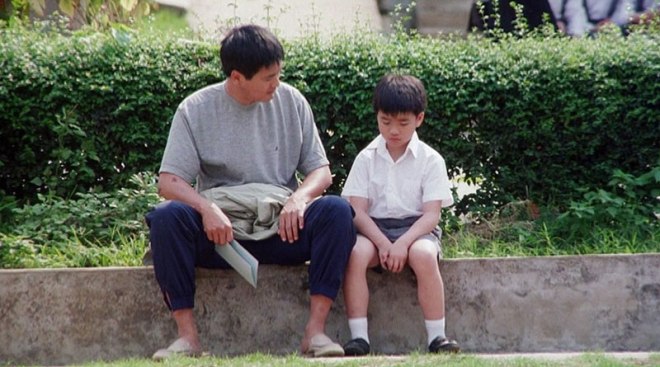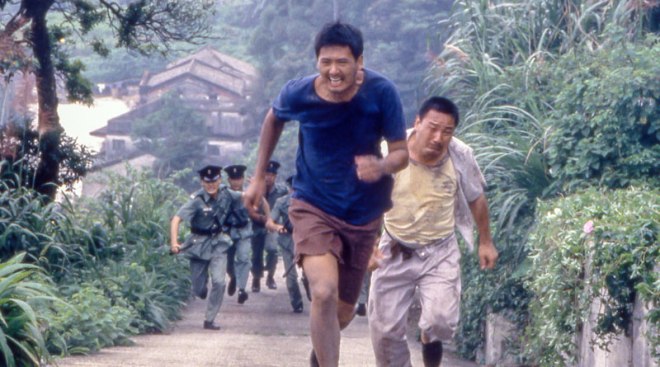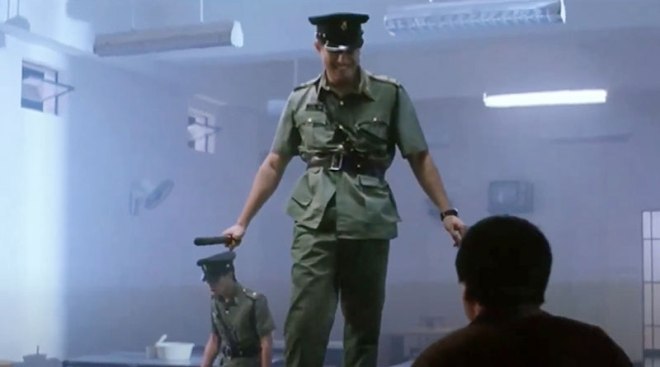(Disclaimer: This review contains spoilers)
It has been 30 years since the late Ringo Lam’s Prison On Fire II <監獄風雲II逃犯> was released back on June 22, 1991.
Although the sequel is no match with the multiple Hong Kong Film Awards-nominated 1987 original in terms of quality and financial success, it was notably a return to form for the director. This is particularly evident following his two less-than-stellar efforts in the big-budget fiasco Undeclared War <聖戰風雲> (1990) and the forgettable Sammo Hung-starred Touch And Go <一觸即發> (1991). Even the sequel failed to match, let alone overcame the first movie’s impressive HK$31.6 million box-office result, the overall HK$24.3 million total gross remained respectable enough.
Frankly, when I first found out about the sequel, I always figured Prison On Fire <監獄風雲> suits better as a one-off movie. A sequel for such a prison genre would either mean a rehash of the original or amping up the successful formula that already worked the first time around. Here, Nam Yin, who previously wrote the first movie, chose the latter.

Instead of Roy Cheung in the first movie, we have Elvis Tsui Kam-Kong replacing him as the new warden, Zau. And yes, he also happens to be a sadistic officer who doesn’t see eye to eye with one of the prisoners. That prisoner in question is none other than Chung Tin-Ching (Chow Yun-Fat, reprising his prior award-nominated role for the second time).
With just 14 months to go before he finally out of prison, Ching just wanted to mind his own business for the rest of his sentence. But one day, when he tries to apply for a leave of absence from prison to visit his son, currently placed in foster care after Ching’s mother (Fung Shui-Chun) has passed away, Zau rejected his application. Desperate to meet his son at all cost, he decided to escape from prison.
The movie also focuses on a bitter rivalry between the Mainland and Hong Kong prisoners, with the former led by Dragon (Chen Song-Yong). Like the first movie that focuses on a friendship between Ching and Tony Leung Ka-Fai’s Lo Ka-Yiu, the sequel incorporates the same theme again. Only this time, Ching’s new friend turns out to be Dragon.

For a seemingly unnecessary sequel, Prison On Fire II <監獄風雲II逃犯> surprisingly fares better than expected. Particularly if you view the sequel as a standalone movie. It also helps that Ringo Lam’s direction is both pacey and engaging with enough dramatic tension throughout the movie.
The cast is equally top-notch, beginning with Chow Yun-Fat’s typically charismatic performance as Ching while he shares good chemistry with Chen Song-Yong, who plays Dragon. Although I personally prefer Roy Cheung the first time around, Elvis Tsui still made quite an impression, though a tad over the top as the new sadistic warden.
For the former, despite Chow Yun-Fat and Chen Song-Yong’s overall excellent performances, the sequel pushes the male-bonding vibe a bit too far, especially during the scene where Ching and Dragon have escaped and lay low somewhere in the jungle. At one point, they even stripped naked while having fun jumping off the cliff and swim in the river at the bottom. Cringey would be the right word to describe such a scene.

The action sequences in Prison On Fire II <監獄風雲II逃犯> are well-staged, a result that earned Lam Moon-Wah — replacing Joe Chu Kai-Sang and Lau Kar-Wing from the first movie — a nomination for Best Action Choreography at the 11th Hong Kong Film Awards.
Unlike the first movie’s multiple nominations, the sequel only managed to secure a single slot. Even so, Lam Moon-Wah’s otherwise thrilling action choreography lost to the more popular Once Upon A Time In China <黃飛鴻>. In the climactic finale, where Ching faces Zau in the locked canteen and ends up stabbing in one of his eyes with a sharpened toothbrush, it was both tense and graphically violent for a mainstream Hong Kong movie. It still made me look away each time I revisited the scene.
Following Prison On Fire II <監獄風雲II逃犯>, Ringo Lam made another 7 movies during the rest of the ’90s era such as the Jackie Chan-starred The Twin Dragons <雙龍會> (1992), where he co-directed with Tsui Hark as well as Full Alert <高度戒備> (1997) and Victim <目露凶光> (1999).


